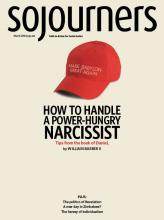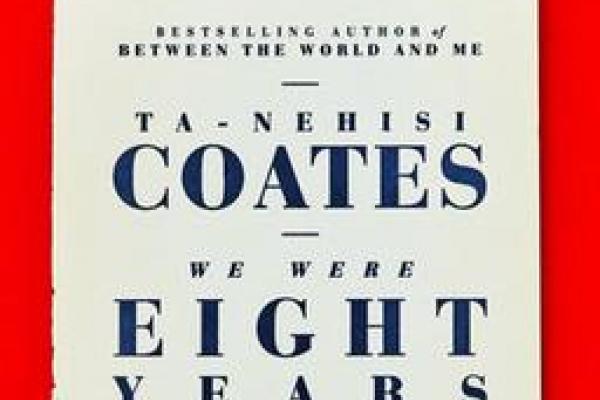TA-NEHISI COATES is an atheist, but in We Were Eight Years in Power he atones for sin. In a 2008 article about Bill Cosby for The Atlantic, Coates failed to thoroughly report on the sexual assault allegations brought against the comedian, only mentioning them briefly. On page 12 of We Were Eight Years in Power, Coates repents. “That was my shame,” he writes. “That was my failure. And that was how this story began.”
By “this story,” Coates means his ongoing career as a correspondent for The Atlantic, during which he has received a MacArthur genius grant, a National Magazine Award, and several other honors for his writings on race in America. Coates is one of the nation’s most popular living chroniclers of the plight of African Americans. But despite that, he is acutely aware of his failings.
We Were Eight Years in Power is both a collection of Coates’ best articles published by The Atlantic and criticism of those pieces. Prefacing most of the articles are short essays by Coates about the stage of life he was in when he wrote each article, the pieces’ triumphs, and their flaws. With sometimes savage specificity, the essays map the evolution of Coates’ writing skills as well as his personal foibles. At the same time, the articles themselves document the flaws of the United States and how the country consistently does wrong by its African-American citizens in favor of doing more than right by its white citizens.
Coates’ writing process is a metaphor for the social corrective he pursues: the abolishment of white supremacy.
Read the Full Article

